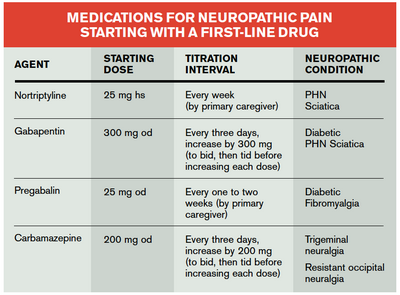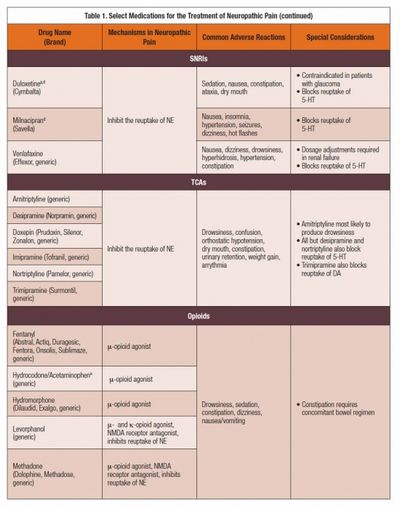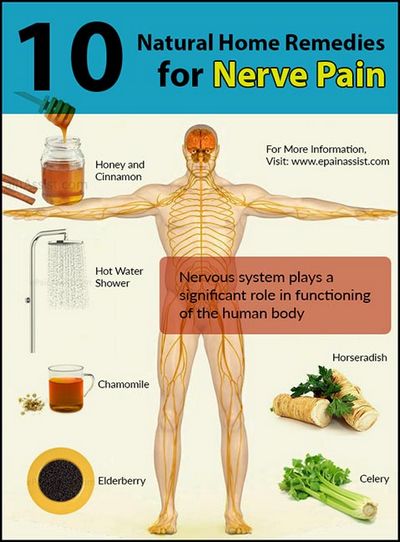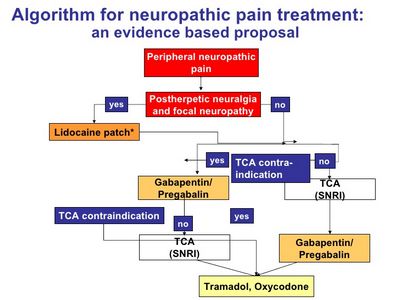Neuropathic pain is a form of pain that is caused by damage to your nervous system.

In contrast with many forms of pain, neuropathy does not generally improve with over-the-counter medicines, including paracetamol and parafixamol, and many other medications are sometimes prescribed. These can usually only be begun at the lowest possible dose, with the maximum recommended dose slowly being increased until they produce an effective effect. If you suffer from neuropathic pain, then you may want to consider taking pain relief drugs, especially for prolonged periods of time.
Neuropathy can be caused by any type of injury or damage to your nerves, such as being hit by a car, a broken bone, cancer treatment, or even a broken arm.

When a nerve becomes damaged, it signals the brain that a part of your body has a problem, causing your body to go into a state of extreme pain.
Unfortunately, neuropathy is not a condition that is easily detected and diagnosed, so you can end up suffering through the pain long after you think you’ve been able to alleviate it. Because neuropathy is often not a very noticeable problem, it can often go undetected and untreated for a long time.
Neuropathy pain can be very serious, so if you suspect you might be suffering from neuropathy, it’s essential you visit your doctor as soon as possible to get a diagnosis and start on pain relief medication. A doctor will likely ask for a medical history, which will include details about any injury you’ve suffered in recent years.

They will then perform an examination, which includes a nerve conduction study and x-ray.
The doctor will decide whether or not neuropathy is present and if the damage to your nerve is severe enough to warrant the use of neuropathy medication. If your neuropathy is severe, they will recommend you take a stronger pain medication and, if you’re on prescription pain medication, they’ll also recommend you take medication to help manage your pain.
However, there are also several non-prescription neuropathy pain medications available to help you manage the pain and discomfort caused by neuropathy. Some of these pain relieving drugs include over-the-counter pain relievers like aspirin and acetaminophen, anti-inflammatory medicines such as ibuprofen and naproxen, nonsteroidal anti-inflammatory drugs like indomethacin, and pain killers, which can include NSAIDs, which include ibuprofen and naproxen.
You’ll need to talk to your doctor before using this medication if you are a sufferer of neuropathy, because some neuropathy medications will interact with certain drugs, such as pain killers, so you’ll want to discuss which neuropathy medications are right for you. If you are taking a neuropathy medication for more than two weeks, your doctor may decide to increase the dose to relieve the pain.

Other medications such as antispasmodics and analgesics can also help reduce pain.
Your doctor may also prescribe medications to help reduce pain or inflammation, although the exact medications you should take will depend upon what is causing your pain. Although pain killers will usually help reduce neuropathic pain, these pain relievers must be taken in conjunction with other drugs, especially anti-inflammatory medications. Therefore, you need to keep in mind that your neuropathy medication will take a while to give you results.
If your pain is only mild, non-prescription pain medication may work just fine.

However, if you have moderate or severe neuropathic pain, and your doctor prescribes more pain relief medication to help reduce the pain, it may be necessary for you to take two or more medications in order to manage the pain effectively. In the case of more severe neuropathy, your doctor may recommend you take medications for both neuropathic pain and for pain relief.
Neuropathy medications, such as acetaminophen and aspirin, can also help reduce inflammation, but they do nothing for pain that is caused by neuropathy. Because of this, it’s important to make sure that you get pain relief from other causes as well.
For example, if you have arthritis and are taking pain relief medication, your doctor may not prescribe anti-inflammatory medications, even though your pain is neuropathic, because these medications are for arthritis and not neuropathy. There is an exception to this rule and that is if you experience severe pain from arthritis, you may still need to take pain killers, since inflammation is another cause of your pain.